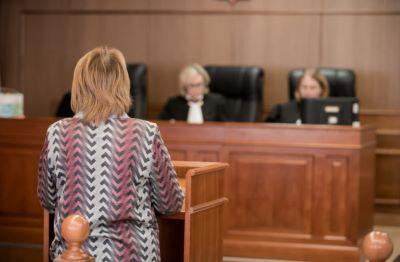OU academics contribute to new BBC Ideas film: ‘Does it ever pay to represent yourself in court?’

Appearing in court without representation is becoming increasingly common. But is it a sensible strategy? Academics from The Open University’s Open Justice Centre have answered exactly this question in a new BBC Ideas film titled ‘Does it ever pay to represent yourself in court?’.
Open Justice Centre Director Francine Ryan, Senior Lecturer in Law Stephanie Pywell, and Head of the OU Law School Hugh McFaul all contributed to the short film. They were joined by Trustee of Law for Life Michael Olatokun and representatives from the Open Justice Centre’s collaborative partner, Support Through Court, including Lizzie Irons and Pauline Wilson.
According to experts, representing yourself is a risky strategy, whether you’re involved in a civil or criminal case. The experience of being a litigant in person – someone who represents themselves in court – can be both daunting and stressful.
Francine Ryan said: “Until we engage in the legal process, we often don’t understand the value of access to justice. Of course, with legal costs rising and access to free representation not always available, it is not surprising that people often have no choice but to represent themselves. But in this video, we explain why it’s not always the best strategy, and highlight organisations that can help.”
Available to view on the award-wining BBC Ideas website, the short film was created and released to support BBC court drama series ‘You Don’t Know Me’ which follows the story of Hero who’s accused of murder but swears he’s innocent.
BBC Ideas content is commissioned by Broadcast and Partnerships at the OU, with support from all faculties. ‘Does it ever pay to represent yourself in court?’ was commissioned by the Faculty of Business and Law, with particular relevance to Bachelor of Laws (Honours), Solicitor Exam Qualification, Evidence Law, and Justice in Action.
Watch the video on the BBC Ideas website.
This article was originally published on The OU news website; click to read the original article.